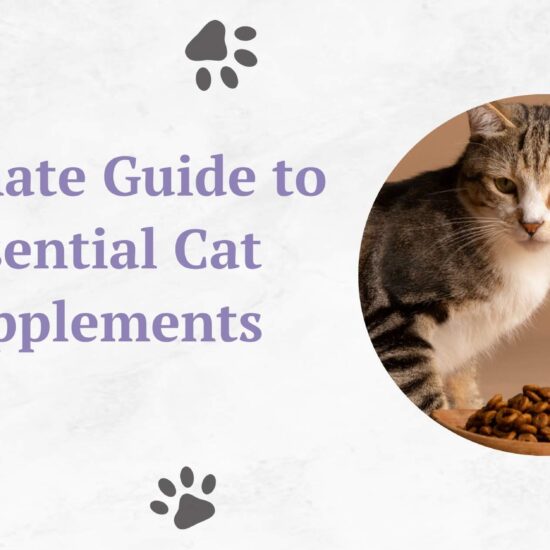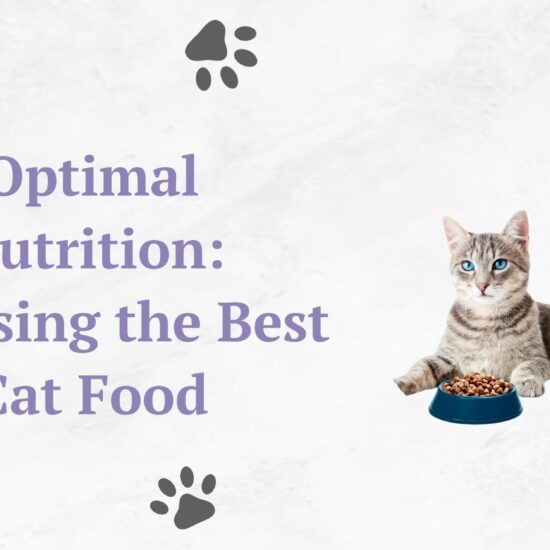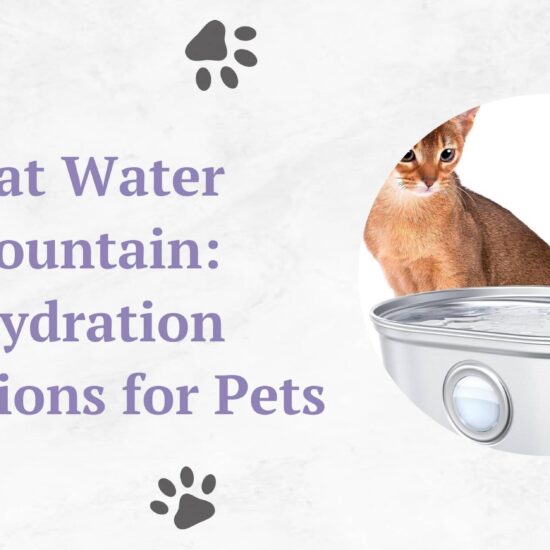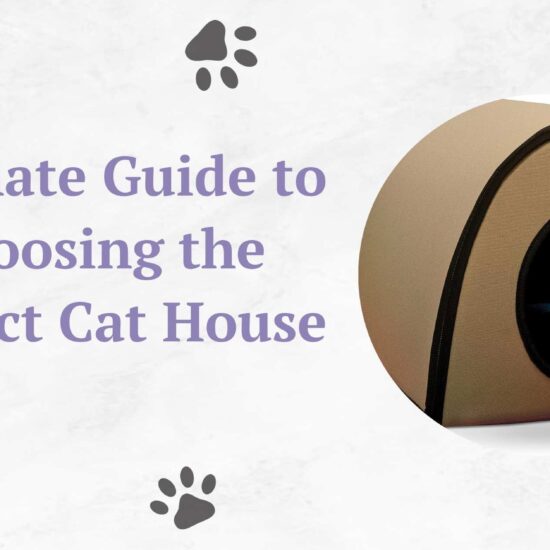We, as humans, have a soft spot for our pets since they enrich our lives with companionship and love and frequently become members of our immediate families.
Table of Contents
Introduction
To live long, healthy lives, pets need medical care just like people do. However, pet owners may face a substantial financial burden due to unforeseeable accidents and diseases. That’s why it’s important to have pet health insurance. In this detailed post, we’ll explore the topic of pets’ best health insurance and explain why it’s so important for the welfare of your furry family members.
What Is Pet Medical Insurance?

The purpose of pet medical insurance, often known as pet health insurance, is to assist pet owners in meeting the financial obligations posed by veterinarian care. Just like with human health insurance, there are a variety of coverage options available for pets. Most of these policies will pay for emergency care, diagnosis and treatment, surgery, medication, and even routine checkups and vaccinations for your pet.
Advantages Of Pet Health Insurance
Reducing the Impact of Unexpected Expenses

Pet medical insurance provides financial peace of mind in the event of an emergency or prolonged illness. Accidents happen, and just like people, pets can get hurt and need emergency medical care. They may also acquire problems that require continuing medical attention, called chronic diseases. Pet owners often suffer severe financial pressure while dealing with such situations because of the high cost of veterinary care.
Pet health insurance is a vital safety net against these unforeseen expenditures, allowing pet owners to give their pets the finest care possible without breaking the bank. Pet owners can gain access to coverage that considerably decreases the financial stress associated with emergency veterinarian treatment for a relatively low monthly price. Pet owners are able to prioritize their pets’ well-being over their own financial concerns because of this financial security.
In addition, having pet medical insurance gives you peace of mind knowing that any unanticipated medical costs will be covered. This assurance is priceless, especially in stressful situations where quick thinking and action are required for the sake of your pet’s well-being. Having pet health insurance gives pet owners the peace of mind they need to act quickly and confidently, getting their pets the potentially lifesaving medical care they need.
Extensive Care

Pet medical insurance provides a wide range of protections, not simply for unexpected medical situations. There are a wide variety of plans available from insurance companies, so pet owners can pick the one that best suits their pet’s age, breed, and lifestyle.
The majority of unforeseen medical costs for your pet are normally covered by basic coverage. However, more extensive plans go above and beyond the basics by covering things like dental work and alternative medicine for your pet. This all-inclusive plan gives pet owners the tools they need to take charge of their pets’ healthcare and give them the best possible treatment throughout their lifetimes.
Some of the best pet health insurance companies encourage clients to work closely with them to create a policy that meets their pet’s specific requirements. With this individualized strategy, you can rest assured that your pet will receive the care it requires, be it routine examinations, immunizations, or specialist procedures. Therefore, pet health insurance is a valuable instrument for fostering general health and warding off future medical issues.
Stabilizing Emotional Health and Happiness

Because of the special connection that forms between a pet and its owner, taking care of a pet is generally a person’s highest concern. Having peace of mind from pet medical insurance is a huge factor in fostering this relationship. When a pet’s health is in jeopardy, the last thing its owner wants is the added stress of worrying about money. It provides a great deal of comfort in difficult times.
Having pet medical insurance removes the financial uncertainty from decision-making, allowing pet owners to make the best choice for their pets. They are able to put their attention where it belongs, on comforting and helping their pets during a difficult time. This calmness benefits both the pet and the owner psychologically, making for a more restful and restorative environment.
In the event of a long-term illness or treatment, the peace of mind provided by pet health insurance can be invaluable. Pet owners can maintain a high quality of life for their dogs while regulating their own stress levels by knowing that the costs connected with continuous care are covered.
Improving the Availability of High-Quality Care

The availability of high-quality, specialized pet care as well as cutting-edge veterinary medicine has grown substantially in recent years. The high cost of these innovative treatments, however, may discourage some pet owners from giving their animals the finest care available.
Some of the best pet health insurance companies fill this void by allowing pet owners to bring their animals to reputable veterinarians without breaking the bank. If pet owners don’t have to worry about how they’ll pay for expensive medical care, they may safely seek out specialists, cutting-edge diagnostics, and cutting-edge surgical interventions for their pets.
Having access to high-quality care improves the experience for both the pet and the owner. To make educated judgments based on medical factors rather than financial restraints, pet owners can work with veterinarians to investigate all treatment possibilities. This advancement in veterinary care eventually benefits pet owners and their animals by enhancing the quality of life for both species.
Protective Care

A pet’s long-term health and happiness can be greatly improved with protective care. Preventable health problems can be mitigated in a number of ways, including through regular checkups, vaccines, dental care, and the control of parasites. However, the cumulative expenditures of these frequent services may discourage pet owners from giving their animals the protective care they need and deserve.
Certain policies of pet medical insurance provide relief by paying for preventative medical services. This preventative method of pet care guarantees that animals get the checkups, vaccines, and cleanings they need to live long, healthy lives. A pet’s lifespan can be lengthened and its quality of life improved through preventative care by identifying potential problems early and acting on them before they worsen.
If you want to provide your pet with the best care possible, getting pet health insurance and investing in preventive treatment is a smart move. It’s evidence that you care about your pet and want them to have a long, healthy, and happy life with you.
Affordable Protection for Families with Multiple Pets

Veterinary care can be expensive, especially for households with multiple pets. Some of the best pet health insurance companies understand this, so they frequently provide discounts for families with many pets, making it more affordable to cover all of a family’s pets.
Discounts for having numerous pets make this type of insurance a sensible and affordable option for families with a menagerie of animals. Owners of multiple pets are incentivized to give equal care to their animals by the availability of multi-pet discounts. This guarantees that each animal in the household is given the love and attention it needs, creating a comfortable and supportive atmosphere for everyone.
In addition, multi-pet discounts encourage responsible pet ownership by encouraging owners to insure all of their pets rather than just some of them. This communal strategy for pet health guarantees that no pet, no matter the financial status of the family, will be without the safeguards and care it requires.
Lifelong Coverage
Chronic disorders and age-related illnesses are among the risks that increase for aging pets. The longevity benefit of pet health insurance ensures that your pet continues to receive the treatment it requires even as they age.
Pets have a higher risk of developing health problems as they age, so it’s important to enroll them in the best pet health insurance as soon as possible. This preventative method of pet care allows you to address age-related issues as soon as they arise, allowing your pet to have a healthy and active lifestyle well into old age.
Pets that have breed-specific predispositions or inherited disorders benefit greatly from lifetime coverage. Having pet medical insurance in place ensures that you are prepared to manage the challenges of caring for them without the added stress of unexpected bills, which these pets are more likely to develop as they age.
Purchasing pet health insurance with a lifetime policy ensures your pet is cared for and happy for the rest of their lives, even in old age. You’re demonstrating that you’re dedicated to giving your pet the love and attention it needs to thrive by giving it the best medical care possible at every age.
All Pets Are Covered, Regardless of Breed or Age

Pet health insurance policies normally do not discriminate based on breed or age, in contrast to some human health insurance policies that may exclude people with pre-existing diseases. All pets, regardless of their age, breed, or medical history, are eligible for insurance under this plan.
This is especially important for senior pets, who may be at a higher risk of developing health problems as they age. In order to manage age-related problems, senior pets may need to see the vet more frequently. Insurance for dogs ensures that pets of any age can get the medical attention they require.
In addition, pets of any age or breed, even those with health problems, are welcome. Many pet health insurance policies include provisions for the treatment and management of pets with preexisting conditions, even if coverage for such conditions is limited or subject to a waiting period. This broad coverage is consistent with pet health insurance‘s fundamental purpose: giving all pets the chance to enjoy long, happy, and healthy lives.
How To Find The Best Pet Health Insurance
Several aspects must be taken into account while deciding on the best pet health insurance policy:
Adjusting Your Pet’s Insurance to Meet Their Specific Needs

The decision to purchase pet health insurance is an important one that involves careful consideration of the many policy possibilities. You can tailor a policy to your pet’s specific needs thanks to the variety of plans and coverage options offered by Some of the best pet health insurance companies.
Think about the age and breed of your pet, as well as any preexisting conditions, while weighing your coverage alternatives. For instance, some dog breeds are more likely to develop particular health problems; therefore, it’s crucial to pick a policy that accounts for this. Determine what kinds of medical expenses are covered, such as those associated with accidents, illnesses, preventative care, dental care, prescription drugs, surgeries, and emergency care. Make sure all of your pet’s medical needs are met by carefully reviewing the policy’s coverage details.
Best Pet Health Insurance in the USA
Pet health insurance is an essential consideration for pet owners who want to ensure their furry friends receive the best possible care without the burden of high veterinary costs. With numerous options available, it can be challenging to choose the right plan. This section will provide an in-depth look at some of the best pet health insurance providers in the USA, including their features, benefits, and costs.
Why Pet Health Insurance is Important
- Financial Protection: Covers unexpected veterinary expenses, reducing financial stress.
- Comprehensive Care: Ensures pets receive necessary treatments without compromise.
- Peace of Mind: Provides assurance that you can afford the best care for your pet.
- Preventative Care: Many plans include coverage for routine check-ups and vaccinations.
Top Pet Health Insurance Providers
Detailed Overview of Top Providers
1.Pets Best
- Coverage Options: Offers accident and illness plans, as well as wellness plans for routine care.
- Key Features: Customizable plans, fast claims processing, and a range of deductible choices.
- Pros: Affordable premiums, comprehensive coverage, and flexible plans.
- Cons: Limited coverage for older pets.
2.Embrace
- Coverage Options: Accident and illness plans, with optional wellness rewards.
- Key Features: Healthy Pet Discount, Wellness Rewards program, and customizable plans.
- Pros: Discounts for healthy pets, comprehensive wellness coverage.
- Cons: Higher premiums for older pets.
3.Healthy Paws
- Coverage Options: Accident and illness plans with unlimited annual coverage.
- Key Features: Fast claims processing, no annual or lifetime caps on payouts.
- Pros: Unlimited coverage, quick reimbursement.
- Cons: No wellness or preventative care coverage.
- Figo
- Coverage Options: Accident and illness plans, with optional wellness coverage.
- Key Features: 100% reimbursement option, short waiting periods for accidents.
- Pros: High reimbursement rates, flexible plans.
- Cons: Limited customer service hours.
4.Pumpkin
- Coverage Options: Accident and illness plans, with a comprehensive preventative care package.
- Key Features: Extensive coverage, preventive care included.
- Pros: Comprehensive coverage, preventive care options.
- Cons: Higher premiums compared to some competitors.
5.Lemonade
- Coverage Options: Accident and illness plans, with optional wellness coverage.
- Key Features: Affordable premiums, fast claims processing.
- Pros: Low premiums, quick reimbursement.
- Cons: Limited coverage options.
6.Trupanion
- Coverage Options: Accident and illness plans with direct vet pay.
- Key Features: No payout limits, direct payment to vets.
- Pros: No annual or lifetime limits, direct vet pay.
- Cons: Higher premiums, longer waiting periods for illnesses.
7.ASPCA
- Coverage Options: Accident and illness plans, with optional wellness coverage.
- Key Features: Coverage for hereditary conditions, multiple pet discount.
- Pros: Comprehensive coverage, discounts for multiple pets.
- Cons: Higher premiums for older pets.
8.Nationwide
- Coverage Options: Accident and illness plans, with optional wellness coverage.
- Key Features: Coverage for exotic pets, comprehensive plans.
- Pros: Coverage for a wide range of pets, comprehensive plans.
- Cons: Higher premiums for certain breeds.
9.Spot
- Coverage Options: Accident and illness plans, with optional wellness coverage.
- Key Features: Customizable plans, no age limits.
- Pros: Flexible plans, no age restrictions.
- Cons: Higher premiums for older pets.
Factors to Consider When Choosing Pet Health Insurance
- Coverage Options: Ensure the plan covers the specific needs of your pet, including accidents, illnesses, and wellness care.
- Cost: Compare premiums, deductibles, and reimbursement levels to find a plan that fits your budget.
- Waiting Periods: Check the waiting periods for coverage to begin, especially for accidents and illnesses.
- Exclusions: Be aware of any exclusions, such as pre-existing conditions or breed-specific issues.
- Customer Service: Consider the quality of customer service and the ease of filing claims.
- Reputation: Research the insurer’s reputation, including reviews and ratings from other pet owners.
Note: There might be affiliate links mentioned here. We may receive a commission if you purchase a product through an affiliate link. There is no additional charge for you. Please do your own research before making any online purchases.

Choose a pet health insurance plan that fits your budget while still providing adequate coverage. Check the premiums, deductibles, and co-pays of each plan you’re considering. Insurance has two components: the monthly premium and the deductible, the out-of-pocket expense you must meet before the policy begins paying benefits. After the deductible is satisfied, the remaining percentage of the veterinarian’s charge is known as the co-payment.
Finding a happy medium between price and coverage is essential. Choose a plan that will protect you adequately without breaking the bank. A reduced premium could seem enticing, but it could lead to higher out-of-pocket payments in the event of a medical emergency. However, more comprehensive coverage and reduced out-of-pocket costs may be included in exchange for a higher premium. Examine your current financial standing and think about the long-term advantages of full coverage before making a decision.
Reimbursement Structure
One of the most important features of pet health insurance is the reimbursement structure, which determines how much of your medical bills will be covered. There is no standard method of compensation among insurance policies. It’s common for plans to reimburse anywhere from 70% to 90% of your veterinary care costs. Some people are reimbursed at a set rate for each treatment or procedure on a predetermined benefit plan.
Choose a repayment system that is both equitable and clear when possible. It’s possible that many veterinary situations could benefit from the adaptability and versatility of a payment system based on a percentage. However, set benefit schedules can ensure that reimbursement amounts are consistent. Determine how much you may expect to get compensated for routine veterinarian care by studying the plan’s reimbursement policy. You’ll be able to choose the most cost-effective plan using the information provided here.
Access to a Veterinarian Referral System
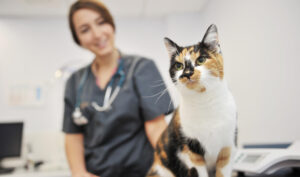
Think about the pet health insurance company’s recommended network of veterinarians. You can choose any licensed veterinarian with some plans, while others compel you to use a specific network of veterinarians. Make sure your preferred veterinarian is included in the provider’s network if you already have one.
There may be benefits to using a group of recommended vets. The insurance company has likely already approved these veterinarians, which will speed up the time it takes to receive reimbursement for any services rendered. These vets may also be familiar with the insurance company’s processes and paperwork, making it easier for you to get what you need.
On the other hand, you may place greater value on the option to see your regular veterinarian, regardless of whether they are part of the network or not. In such a circumstance, it is important that the pet health insurance policy you select does not restrict your freedom to see a veterinarian of your choice.
Exclusions and Limitations
In order to understand what is not covered by the pet health insurance plan, it is essential to read the policy’s exclusions and limits in detail. A plan may have coverage limitations, or “exclusions,” for certain medical issues. Coverage for preexisting conditions may be limited, and there may be a waiting period before some treatments are covered.
Careful consideration of these restrictions can help you set reasonable expectations and select the best plan for your pet. Some insurance policies, for instance, won’t pay for medical care for puppies affected by diseases that run in their family. You should give coverage for these diseases high priority if your pet is of a breed predisposed to them.
If you need to file a claim, you can avoid unpleasant surprises by familiarizing yourself with the policy’s exclusions and limitations in advance. By knowing the limits of your pet insurance, you can save money on your pet’s medical care.
Reputation and Customer Reviews
The reliability of the pet health insurance company should be investigated before making a final choice. Finding out about the provider’s dependability, customer service, and claim processing from previous customers and word-of-mouth referrals can be extremely helpful.
Feedback from policyholders can shed light on the insurance provider’s claims processing speed, customer service responsiveness, and policyholders’ general happiness. You can gain trust in the provider’s capacity to deliver on its promises if the reviews are positive, or you can proceed with caution if the reviews are bad.
Think about how well-liked the supplier is among veterinarians, in addition to what customers have to say. Discuss your options with your vet and read up on veterinary forums for advice. Reliability in coverage and helpful service are hallmarks of a reputable pet health insurance company.
Conclusion
Purchasing pet health insurance is a smart move since it guarantees your pet will get the best medical treatment possible without breaking the bank. Health insurance for pets is a safety net that lets you put your pet’s health and well-being ahead of your own in the event of an accident, illness, or the need for preventative care. You can ensure your pet is always healthy, happy, and a valued member of your family by selecting the appropriate plan and learning about its features and benefits. Always keep in mind that the key to a happy and healthy pet is pet health insurance.
FAQs
Why is it crucial to get pet health insurance?
In the event of an accident, illness, or surgical procedure, as well as for routine preventative maintenance, the cost of veterinary care can quickly add up. It gives you peace of mind and financial security, guaranteeing that your pet will receive prompt medical care without breaking the bank.
How does pet health insurance function?
Health insurance for pets functions in much the same way as insurance for people. In exchange for protection, pet owners pay a regular fee. When your pet needs medical attention, you can make a claim to your insurance company and get paid back. The coverage and reimbursement structure of the plan will determine the amount that will be reimbursed.
What does conventional pet health insurance cover?
Depending on the policy, accidents, diseases, surgeries, medications, and even preventative care are typically covered under pet health insurance. Dental care, complementary therapies, and even hospitalization costs may all be covered by your plan. You should compare the various plans’ coverage to find the one that works best for your pet.
How does covering your pet with the best pet health insurance help you financially?
The high cost of veterinarian care can be greatly reduced by purchasing pet health insurance. The insurance policy pays back a portion of the total cost in the event of an accident or illness, relieving financial stress on pet owners so they can prioritize their companion’s health.
When using pet health insurance, do I have to go to a specific vet?
There are two main types of pet health insurance: those that restrict you to a specific network of vets and those that let you see any qualified doctor. Choose a plan that allows you to see any licensed veterinarian, or make sure your favorite vet is included in the provider’s network.
In terms of pet health insurance, what are the limitations and exclusions?
Certain illnesses and treatments may not be covered by your pet’s insurance policy due to exclusions. Waiting periods before coverage kicks in and exclusions for pre-existing conditions are two examples of possible restrictions. It’s important to read the fine print and find out what the plan doesn’t pay for.
How can I determine which pet health insurance policy is best for my animal companion?
When deciding on the best pet health insurance policy, it’s important to take into account your pet’s breed, age, medical history, and anticipated care requirements. Before settling on an insurance plan, it’s important to do some research about the various plans’ coverage details, pricing, reimbursement policies, and provider’s overall standing.
How do changes to the reimbursement structure impact me?
How much of your veterinary bill will be reimbursed depends on the reimbursement plan. Some plans pay a set dollar amount, while others refund a portion of the cost. You can better predict your out-of-pocket expenses and select a plan that meets your financial needs.
Is there a maximum age or breed limit for coverage of pet health insurance?
Most insurance policies for pets do not include age or breed restrictions. Because of this broad approach, all pets, regardless of their age, breed, or medical history, are eligible to receive insurance benefits. Pre-existing conditions may be subject to coverage exclusions or waiting periods under certain plans.
How do a company’s reputation and how its customers rate it depend on its service?
To learn more about the pet health insurance company’s dependability, customer service, and claims processing, look into their ratings and reputation. You can trust a supplier with plenty of positive reviews but be wary of one with lots of negative comments. It’s also a good idea to get suggestions from veterinarians and other pet owners.





